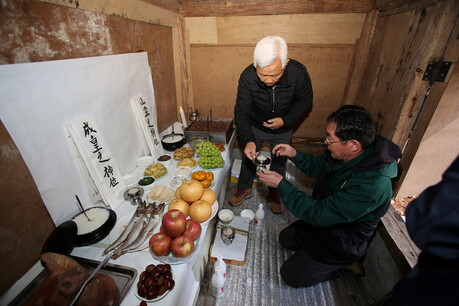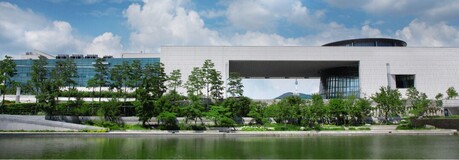The International Union of Architects (UIA), working in partnership with UN-Habitat, has officially announced the launch of the third cycle of the prestigious UIA 2030 Award. This biennial international prize, which was first introduced in 2021, serves to highlight and celebrate the crucial role that architecture plays in advancing the United Nations 2030 Agenda for Sustainable Development, with particular emphasis on Sustainable Development Goal 11: Sustainable Cities and Communities and the New Urban Agenda.
The award is organized by the UIA's UN 17 SDGs Commission and specifically recognizes built architectural projects that successfully combine innovative design with measurable contributions to the Sustainable Development Goals (SDGs). The program is strategically structured to align with the schedule of the World Urban Forum (WUF) and will run through a total of five cycles.
For the third cycle, several key dates have been established. The official launch took place on July 29, 2025, with the deadline for project inquiries set for August 26, 2025. Responses to these inquiries will be published by September 2, 2025. The submission deadline for Stage 1 applications is scheduled for October 29, 2025, while Stage 2 submissions must be completed by March 6, 2026. The final announcement of winners will take place during the World Urban Forum 13 (WUF13) in May 2026, which will be held in Baku, Azerbaijan. The winning projects will be prominently featured across both UIA and UN-Habitat platforms, including at the 2026 UIA World Congress in Barcelona.
The distinguished jury panel for this third cycle includes Peter Oborn, Natalie Mossin, Tina Saaby, Nadia Habash, Anna Rubbo, Rob Adams, and Nadia Tromp. Ishtiaque Zahir Titas will serve as the alternate juror, while Iman Gawad will participate in the process as a Sustainable Development Goals expert observer on the Technical Committee.
The comprehensive selection process will unfold in two distinct stages. During the first stage, all submissions will be reviewed on a regional basis, reflecting the UIA's five global regions around the world. The jury members will select between one and three Regional Finalists in each category to advance to the second stage of evaluation. The region of evaluation will be determined specifically by the geographical location of each submitted project.
All entries will be evaluated and judged according to several critical criteria, including their effectiveness in addressing the targeted SDG principles and the New Urban Agenda, with careful attention paid to building performance and measurable impact. Design quality will also be thoroughly assessed, including functionality, durability, and contextual sensitivity. Additionally, judges will examine the degree to which projects demonstrate a holistic, life-cycle-oriented approach to sustainable architecture and urban development.
The UIA 2030 Award recognizes built projects across six comprehensive categories, each carefully aligned with specific Sustainable Development Goals, highlighting architecture's unique capacity to address pressing global challenges through thoughtful and innovative design solutions.
The first category, "Ensure Availability and Sustainable Management of Water and Sanitation for All," is aligned with SDG 6.3, which focuses on progress in wastewater treatment. This category emphasizes projects that contribute to improving water quality by reducing pollution, minimizing hazardous discharges, and increasing recycling and safe reuse practices. Since buildings and infrastructure are closely linked to water systems, this category particularly emphasizes how architectural design can support sustainable water management and contribute to healthier urban environments.
The second category, "Protect Labour Rights and Promote Safe Working Environments," aligns with SDG 8.8 and recognizes projects that actively promote safe, secure, and inclusive workplaces for all workers. Architectural design significantly influences working conditions through strategic layout decisions, proper ventilation systems, effective lighting solutions, and appropriate material choices, ultimately shaping environments that support the health, safety, and overall well-being of occupants, particularly in contexts involving vulnerable or precarious labor situations.
The third category, "Adequate, Safe, and Affordable Housing," corresponds to SDG 11.1 and acknowledges projects that successfully improve access to secure and affordable housing options. This category encompasses efforts in new construction projects, comprehensive urban regeneration initiatives, and slum upgrading programs, recognizing that architecture plays a significant role in delivering quality housing that meets basic human needs while effectively responding to demographic, economic, and climatic challenges.
The fourth category, "Participatory, Land-use Efficient, and Inclusive Planning," aligns with SDG 11.3 and highlights projects that contribute to more inclusive, integrated, and sustainable approaches to human settlement planning and development. The built environment is fundamentally shaped by critical decisions regarding land use and density, and this category reflects the vital importance of participatory and equitable planning processes in successful urban development initiatives.
The fifth category, "Access to Green and Public Space," is aligned with SDG 11.7 and focuses specifically on projects that expand and improve access to safe, inclusive, and accessible public spaces for all community members. As urban areas continue to become more compact and densely populated, the thoughtful design and proper maintenance of parks, plazas, and other open spaces become essential to supporting both physical and mental health, encouraging positive social interaction, and promoting urban biodiversity.
The final category, "Strengthen Resilience and Adaptive Capacity to Climate-related Disasters," corresponds with SDG 13.1 and recognizes projects that successfully incorporate comprehensive strategies to reduce exposure and vulnerability to climate-related risks and disasters. Through careful decisions related to strategic siting, appropriate materials selection, structural design, and overall performance optimization, this category highlights how architecture can effectively support resilience and long-term adaptability in the face of ongoing environmental change and climate challenges.
Since its initial launch in 2021, the UIA 2030 Award has consistently spotlighted exceptional architectural projects that advance the UN Sustainable Development Goals, showcasing an impressive and diverse range of innovative approaches to addressing global sustainability challenges. The winners of the second cycle, which were announced last year, include several notable and groundbreaking projects.
Among the distinguished winners was the Benjakitti Forest Park in Thailand, designed by Arsomsilp Community and Environmental Architect in collaboration with Turenscape as design consultant. This project won in the "Access to Green and Public Space" category. Another notable winner was the series of innovative chapels in Ruesta, Spain, created by Sebastián Arquitectos SLP, and ETC Bygg in Sweden, designed by Kaminsky Arkitektur AB and Arkitekt Hans Eek AB.
Additional winners from the second cycle included Nightingale Village by Nightingale Housing in Australia, which won in the "Adequate, Safe and Affordable Housing" category, and Huebergass Berne by GWJ Architektur AG in Switzerland, also recognized in the housing category.
From the first cycle of the award, notable winners included the Karoline Goldhofer Daycare Centre by Heilergeiger Architekten und Stadtplaner BDA, which won in the "Improving Energy Efficiency" category, and the House of Dreams by Kuo Jze Yi and Peter Hasdell from the Insitu Project at the School of Design, The Hong Kong Polytechnic University, which was recognized in the "Utilizing Local Materials" category.
Another significant first-cycle winner was the "Co-creation of Urban Spaces by the Nobogonga River" project, which was developed through collaboration between Co.Creation.Architects, the Jhenaidah Citywide People's Network, the Platform of Community Action and Architecture (POCAA), and the Community Architects Network (CAN). This project won in the "Access to Green and Public Space" category.
The UIA 2030 Award continues to serve as a vital platform for recognizing and promoting architectural excellence that directly contributes to global sustainability goals, encouraging architects and designers worldwide to consider the broader impact of their work on communities, environments, and future generations. Through this award program, the International Union of Architects and UN-Habitat are working together to demonstrate how thoughtful, innovative architecture can play a crucial role in building a more sustainable and equitable world for all.





























